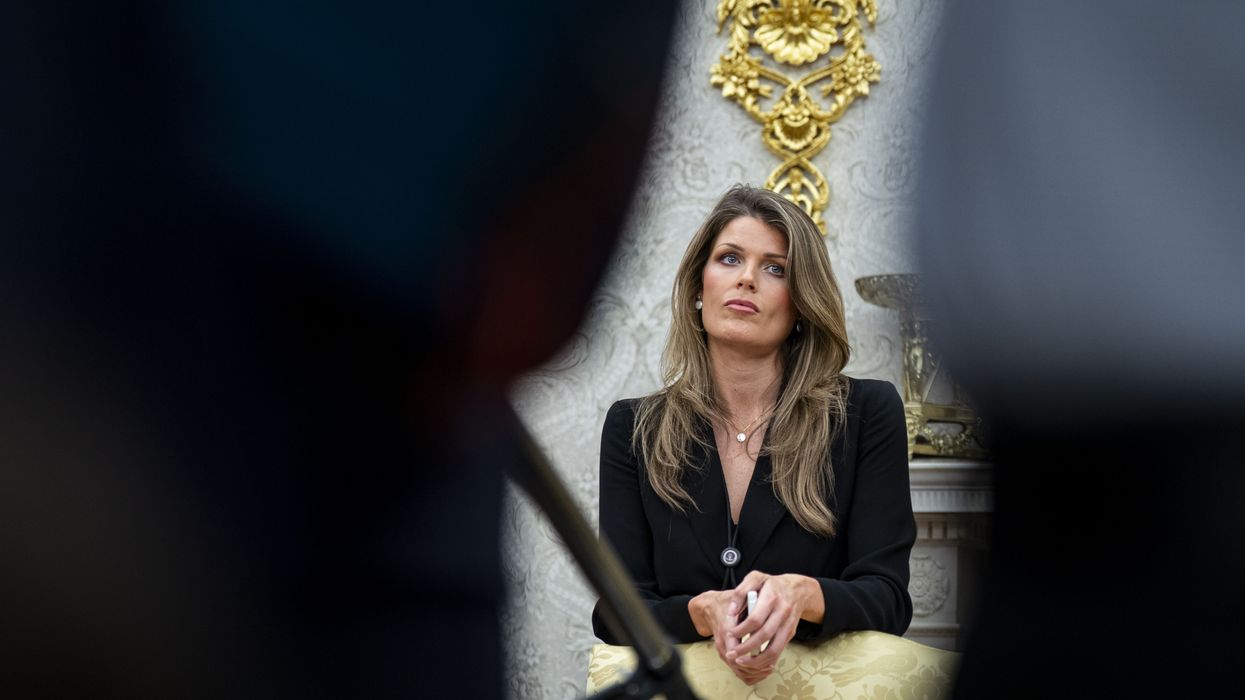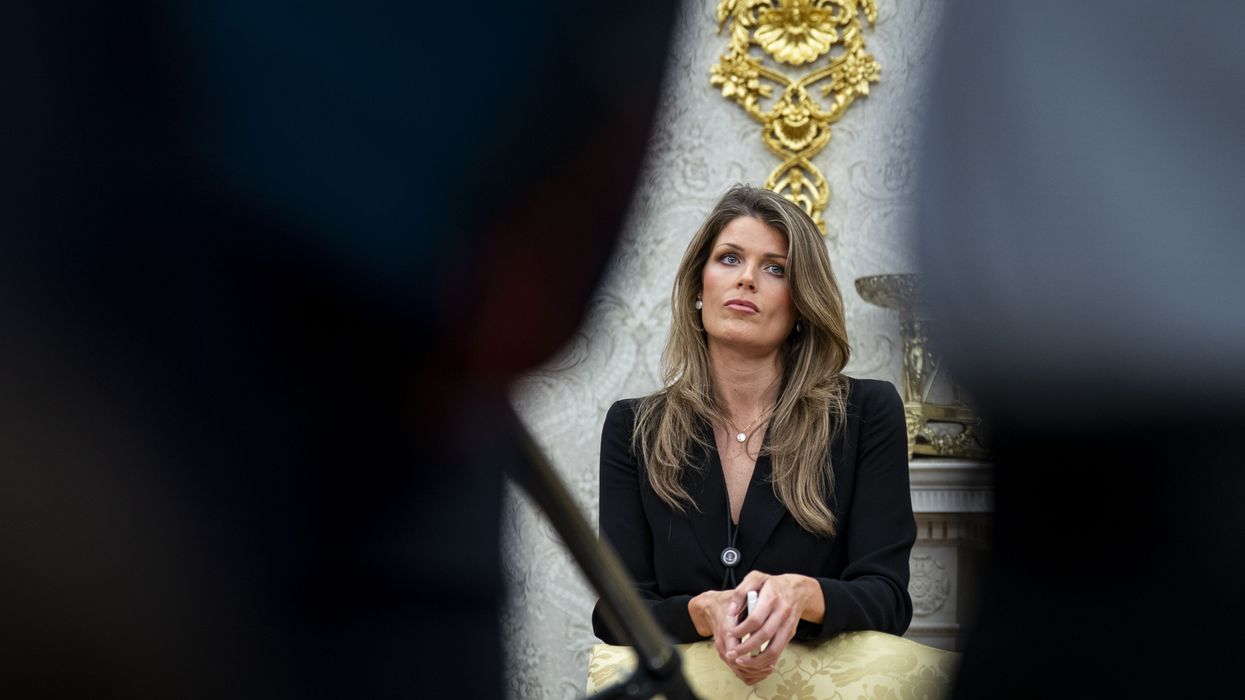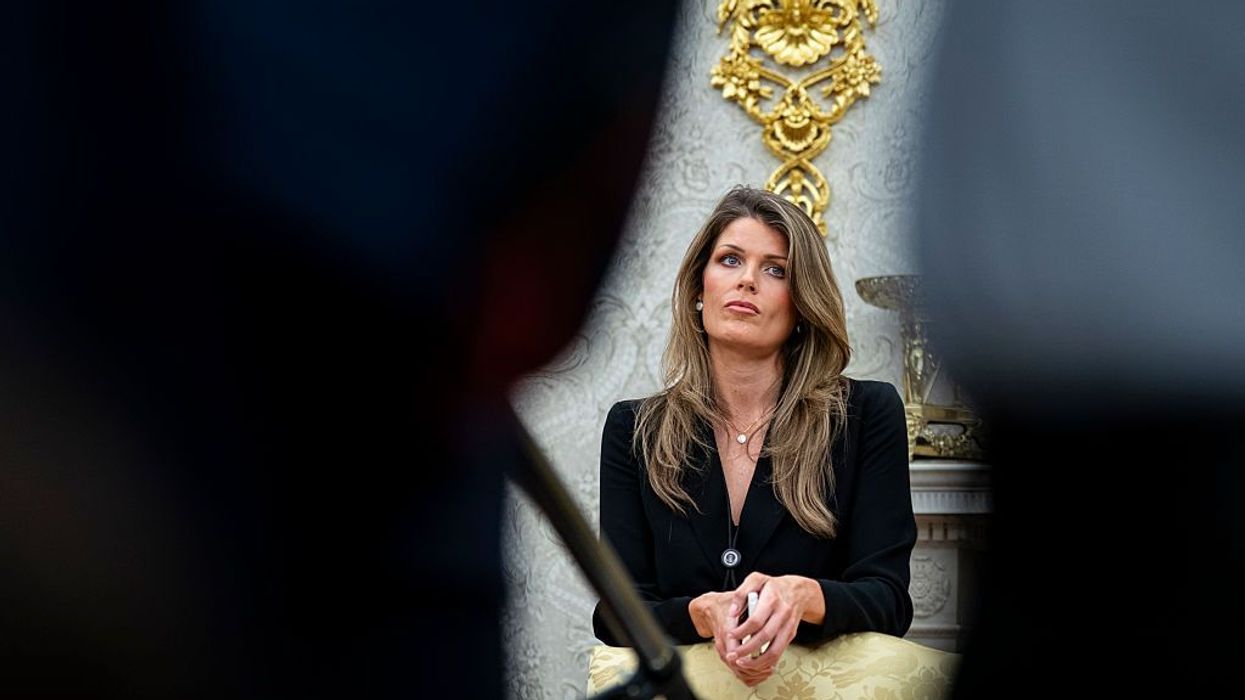Competence is a key requirement for obtaining and retaining a law license. But nothing in Halligan’s education, experience, or training qualified her to prosecute federal crimes, much less lead a US Attorney’s office of more than 300 attorneys and staff in four divisions in Alexandria, Richmond, Norfolk, and Newport News. For starters, she has never tried a criminal case. But Trump always prefers loyalty over competence.
Halligan attended a private Catholic high school and a Jesuit university where she studied politics and broadcast journalism. She competed in the Miss Colorado USA pageant in 2009 and 2010 and received her law degree from the University of Miami School of Law. Upon graduation, she went to work in a Miami law firm, representing insurance companies against homeowners and businesses.
Even if Halligan manages to keep her law license, she will never recover her professional reputation. It’s the Trump effect.
Halligan met Trump in November 2021 at Trump International Golf Club in West Palm Beach. In early 2022, he made her part of his legal team on the Mar-a-Lago documents case.
After the election, she worked on Trump’s project to whitewash US history by cleansing the Smithsonian Institution of historically accurate but unpleasant facts. In August, she co-signed a letter instructing eight of the Smithsonian’s museums to replace exhibits that include “divisive or ideologically driven” material with “unifying, historically accurate” displays.
Answering Trump’s Call…
Based on the weakness of the cases against former FBI director James Comey and another Trump target, New York Attorney General Letitia James, Trump’s first interim US Attorney for the Eastern District of Virginia, Eric S. Siebert, refused his demand to indict them. Trump responded by declaring that he wanted Siebert “out.” Hours later, he resigned.
With the statute of limitations on charges against Comey expiring in days, Trump told Attorney General Pam Bondi to appoint 36-year-old Halligan—a senior White House staff secretary and special assistant to the President—as Siebert’s replacement.
“Lindsay Halligan is a really good lawyer, and likes you a lot,” Trump posted in a public message to Bondi.
Two days later, Halligan was sworn in as the new interim US Attorney. Her singular mission was to secure indictments against Comey and James.
Two days after that, on September 24, she succeeded. Halligan presented the case against Comey personally to the grand jury. Federal judges are now exposing her incompetence.
November 17: A federal magistrate judge found that the government may have violated Comey’s constitutional rights and his attorney-client privilege. The court listed 11 bases upon which the government’s misconduct—including Halligan’s statements to and conduct before the grand jury—may have violated the Constitution and require dismissal of Comey’s indictment.
November 19: Halligan admitted to another federal judge that she never showed the final indictment to the entire grand jury after it had rejected her first submission – a remarkable prosecutorial failure.
November 24: In rulings that invalidated the Comey and James indictments based on Trump’s unlawful appointment of Halligan, a third court began its opinion with this shot:
On September 25, 2025, Lindsey Halligan, a former White House aide with no prior prosecutorial experience, appeared before a federal grand jury in the Eastern District of Virginia. Having been appointed Interim U.S. Attorney by the Attorney General just days before, Ms. Halligan secured a two-count indictment charging former FBI Director James B. Comey, Jr….
…And Suffering the Consequences
Every attorney requires a license to practice law. The bar examiners who issue and renew those licenses promulgate rules of conduct that every lawyer must follow. Even before the latest judicial revelations, Halligan was defending complaints that she had violated those rules. But with the latest court rulings, she is in a whole new world of hurt. And Trump’s pardons won’t help her.
Here’s a partial list of the Model Rules that could pose problems for Halligan:
Rule 1.1: Competence
A lawyer shall provide competent representation to a client. Competent representation requires the legal knowledge, skill, thoroughness and preparation reasonably necessary for the representation.”
[Halligan has never tried a criminal case.]
Rule 3.1: Meritorious Claims and Contentions
A lawyer shall not bring or defend a proceeding, or assert or controvert an issue therein, unless there is a basis in law and fact for doing so that is not frivolous,….”
[Halligan’s predecessor found that the case against Comey was too weak to pursue.]
Rule 3.8: Special Responsibilities of a Prosecutor
The prosecutor in a criminal case shall:
(a)refrain from prosecuting a charge that the prosecutor knows is not supported by probable cause;….”
[Here, again, her predecessor found that any case against Comey was a loser for the government.]
Rule 8.4: Misconduct
It is professional misconduct for a lawyer to:
(d) engage in conduct that is prejudicial to the administration of justice;….”
[The circumstances surrounding Trump’s appointment of Halligan and her subsequent indictment of Comey suggest an abuse of power and conduct prejudicial to the administration of justice.]
Special rules for federal prosecutors echo and reinforce the Model Rules. They too require probable cause for charges, investigations and prosecutions that are conducted fairly and without vindictiveness, and a ban against politicized or partisan prosecutions.
In fact, the Justice Department has a “longstanding threshold requirement that a prosecutor may commence or recommend federal prosecution only if he/she believes that the person will more likely than not be found guilty beyond a reasonable doubt by an unbiased trier of fact and that the conviction will be upheld on appeal.”
Even if Halligan manages to keep her law license, she will never recover her professional reputation. It’s the Trump effect.
Maybe she can get Defense Secretary Pete Hegseth’s old job at Fox News.




